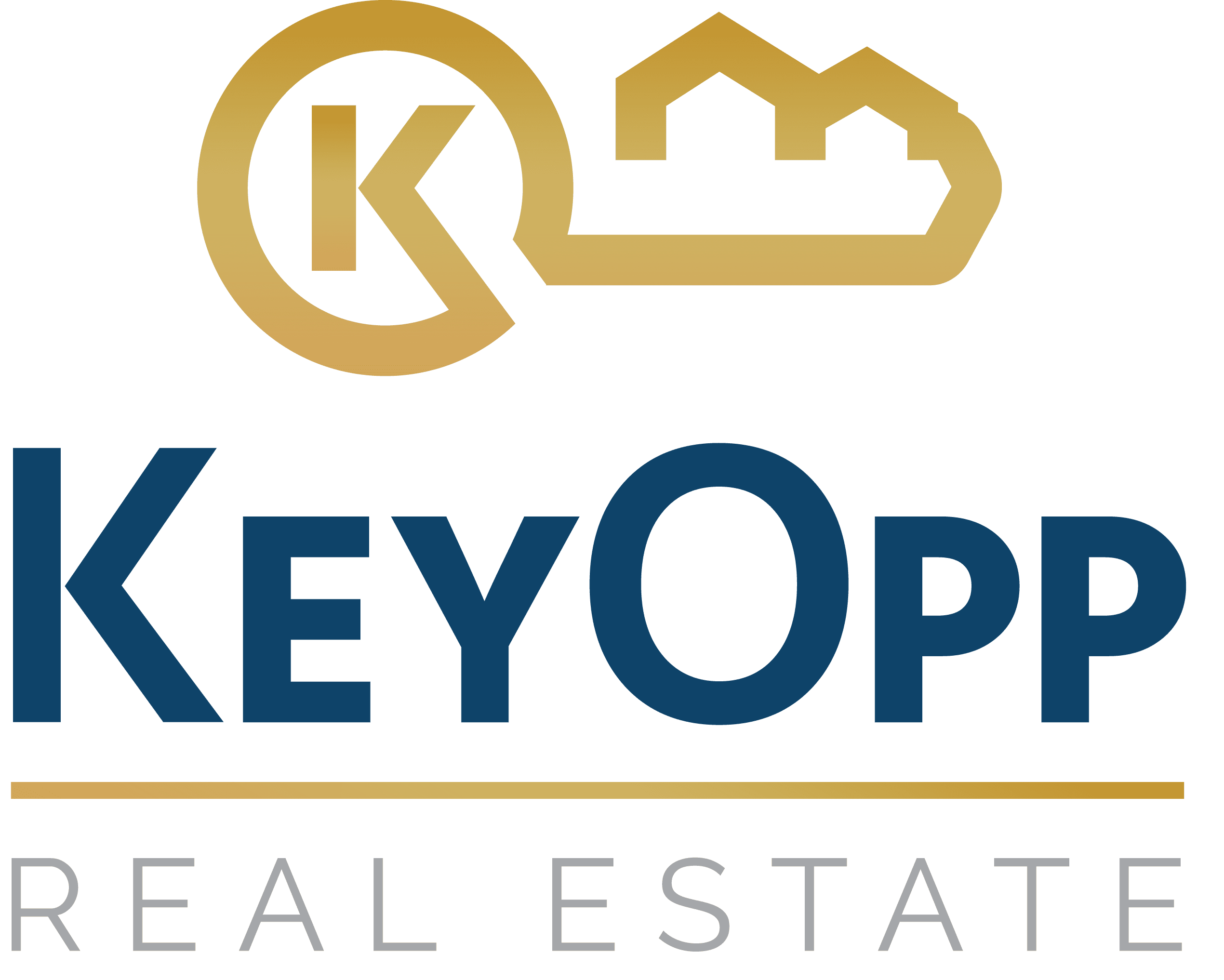When you decide to sell your home, one of the most important choices you’ll make is selecting a listing agent. Unfortunately, many homeowners have limited knowledge of what listing agents do and don’t do. A listing agent does far more than simply affix a sign to your front yard and wait for offers to materialize. They don’t just sell houses; they do so much more as an advocate, advisor, and strategist. Understanding what your listing agent actually does during the process of selling your home will give you a better sense of the value they provide and why having the right is essential to achieving your real estate goals. In this article, we will dive into the step by step details of what a successful listing agent should do for you.

- Consultation and Strategy
The first step in the process is the initial consultation. During this meeting, your listing agent will discuss your expectations, timeline, and goals for the sale of your property. The importance of this meeting should not be taken lightly and is a cornerstone, in fact, for your whole transaction. Your listing agent will use this meeting to capture a comprehensive breakdown of your property not only about its size, features and amenities, but also the nuances of the property and the history of any changes and improvements during both your ownership as well as prior ownership.
Your agent will produce a detailed market analysis and strategy after this initial consultation. They will look into your local neighborhood and analyze the properties that are like yours, known as comparable properties (aka comps), that have recently been sold or that are currently for sale. The objective of this analysis is to set a competitive and realistic listing price for your home, within the context of prioritizing your goals as the seller. Pricing your home well and competitively will draw in more potential buyers, which could end up leading to multiple offers and ideally a final sale price that is even higher than the listing price. A rock-star agent will be able to craft an effective and comprehensive listing plan that will make you feel well informed, aligned, and excited to start.
- Preparing Your Home for Sale
After the list price has been established you and your agent will discuss how to get your home ready for sale. This preparation can be as simple as de-cluttering and cleaning up the house if you are still living there to cosmetic updates, kitchen and bathroom remodels or improving the curb appeal with landscaping face lift. These recommendations and proposals from your listing agent are intended to enhance the appeal of your home as well as its value in the market.
For instance, staging for vacant homes entails furnishing your property so that prospective buyers can envision the fullest potential of a home by highlighting your home’s strong suits and/or detracting from its weakness. This can be as simple as moving some of the furniture pieces to a different position or as major as bringing in rental furniture and accessories. Staging has been proven to be essential for maximizing the sale price of your home. According to an article published by NAR (National Association of Realtors), committing to an average of 1% investment of the sale price could bring you an ROI of 5-15% over asking price, and accelerate the sale 3 to 30 days faster than non-staged homes. Handling the project management aspect of staging the home can be an exhaustive process, but your agent is there to manage the entire process for you.
A great agent as an eye for details and during an onsite walkthrough of the home, they may observe certain things that could increase the chances of your house being sold such as that painting is needed in some of the rooms, landscaping the back and front yard, changing outlets to white, or simply fixing a leaky faucet.
- Marketing Your Property
Marketing is perhaps the most significant area that clearly reveals a listing agent’s strength. In today’s market, it’s simply not effective to just list a property on the Multiple Listing Service [MLS] and wait for buyers to make a call. Marketing is a process that requires proper execution through the various platforms blending both conventional and digital channels.
- Photography and Videography: Professional listing photos, videos, and 3D virtual tours are a must if you want your property to shine online. A listing agent will handle coordination with a photographer and videographer to produce media for your property that will wow buyers and help drive more demand to your property to achieve a higher sales price. A property without quality media may detract buyers from viewing your property or submitting a purchase offer..
- Online Listings: Your property will be listed with the MLS, but that does not end there. Your agent should make it visible in top real estate sites such as Zillow, Redfin, Realtor.com, Trulia and also share your property within their network of Realtors who may in fact have a buyer searching for your exact home. If you are working with one of the top agents in the Bay Area they will likely also belong to the exclusive Top Agent Network where they can also share your property with Agents that work with a lot of qualified buyers.
- Social Media Marketing: A tech savvy agent will also ensure that your home has a spotlight from most social media channels including Facebook, Instagram, and etc. This may include targeted ads, posts, or even live virtual open houses.
- Print Advertising: Your agent will also spend considerable time sending traditional print advertising such as mailers/postcards and door knocking with door hangers prior to open houses using an attractive write up on the property focusing on key highlights, features, and benefits.
- Open Houses and Showings: This work will be done by your agent through open houses, broker’s tours and private appointments to attract potential buyers. They will coordinate and manage logistics, schedule appointments, follow up with leads, and provide you collected feedback from the tours.

- Negotiating Offers
After listing your property, the main objective is to receive offers. If the market allows, and if your agent priced the property right, there may be multiple offers. The first objective of the negotiation is to achieve the best price and terms for you. However, as with most negotiations, there is more to it than meets the eye; your agent must maintain a good working relationship with the buyer’s agent. It is also about understanding the entire scope of every offer, including but not limited to: terms, contingencies, closing timelines, buyer qualification, concessions, and etc.
Your agent will review the offers with you in detail and provide their professional insight on the best offer that will meet your real estate goals. If necessary, they will craft a counteroffer and negotiate directly with the buyer’s agent to design an offer that will meet your needs. This process takes a savvy real estate expert who is able to utilize their experience and creativity in order to navigate through the negotiation process.
- Managing the Transaction
After an offer is accepted, the sale progresses to the closing phase. This part of the transaction involves numerous steps and can take several weeks. Your listing agent will manage this process entirely from start to finish, ensuring that everything stays on track and that any potential problems are addressed quickly.
-
- Coordination with multiple parties: Your agent does the heavy lifting of the coordinating work with the buyer and the buyer’s agent. They work closely with the buyer’s agent and you, the seller, to make sure that all of the contract terms are being met. This includes ensuring that the house is properly inspected, appraised, and any agreed repairs are completed by the contract deadlines. Additionally, they will coordinate with lenders, appraisers, escrow agents, vendors, and more throughout the process.
- Handling Inspections and Appraisals: When the inspection uncovers problems, your agent will work with the other party to come to a mutually acceptable resolution. This might involve completing the repairs, in which case they will make the appropriate arrangements with the trade professional performing the repair., or it might result in renegotiating the sale price of the house in light of the discovered issues. Your agent will ensure the buyer’s contingencies, if any exist, are completed by the deadline. It’s worthy to note that having an experienced agent can pay big dividends for your side.
- Paperwork and Documentation: Real estate transactions require a significant amount of paperwork. It is your agent’s responsibility to ensure that all contractual documents and disclosures are accurately and completely filled out and fully signed. Mistakes can turn into expensive problems for buyers and sellers. If the paperwork is not done correctly and in a timely manner, you may not be able to proceed with the transaction, or even worse, end up losing money. But don’t worry as seasoned agents and their team, such as the ones working at KeyOpp, will make sure your transaction file is fully completed.
- Closing Preparation: As the date of settlement comes near, your agent will work with the title insurance company, the escrow officer, and various other parties to ensure that things go smoothly. They will review the estimated settlement statement with you and will make sure that all of the debits and credits are correct.
- Post Sale Support:
The job of a listing agent doesn’t necessarily end at closing. Even after the sale is complete, many agents continue to provide support and guidance. They might help you find a new home, answer post-sale questions, or even recommend moving companies, contractors, or other services. In some cases, your agent may assist with post–sale matters, such as dealing with escrow holdbacks or handling other issues that may arise later. Your agent is there to be your friend, advocate, and lifelong real estate partner and to be a helping hand when you have any questions regarding real estate.
Real estate selling is never easy, and a home is one of the most emotional assets to sell. A good listing agent is not just someone who lists your property, but is a professional ally, advocate, and navigator throughout the whole process. They bring to the table specialized knowledge on pricing, marketing, negotiating and managing the transaction process to get the sale done optimally and accurately.
When selecting a listing agent, who you hire will be your partner and work tirelessly in helping you achieve your goals and in making the process of selling your house as easy as it can be. In a competitive market, it is important for anyone selling his/her property to have the right agent as it will make all the difference between a frustrating and challenging process to a quick and profitable sale.
If you’re unsure about where to start looking for an agent, why not talk with one of ours? At KeyOpp Real Estate, our agents embody and consistently demonstrate all of these great qualities listed on this blog as our minimum level of service!




 Kelvin Kam, the Broker of Record for KeyOpp Real Estate and Founder of Sequoia Real Estate, stands out as a pragmatic leader in the real estate domain. Since embarking on his journey in 2003, Kam’s trajectory embodies a strategic fusion of foresight, diversification, and an unwavering commitment to excellence.
Kelvin Kam, the Broker of Record for KeyOpp Real Estate and Founder of Sequoia Real Estate, stands out as a pragmatic leader in the real estate domain. Since embarking on his journey in 2003, Kam’s trajectory embodies a strategic fusion of foresight, diversification, and an unwavering commitment to excellence. Karmen Wong’s journey to real estate was inspired by her positive experience buying a home with her sister over two years ago. Their agent, who was patient and knowledgeable, made the transaction feel like a breeze. This experience, coupled with her Aunt’s belief in real estate investment, ignited Karmen’s interest in pursuing it as a career. She is driven by the opportunity to help others through one of the most significant transactions in their lifetime.
Karmen Wong’s journey to real estate was inspired by her positive experience buying a home with her sister over two years ago. Their agent, who was patient and knowledgeable, made the transaction feel like a breeze. This experience, coupled with her Aunt’s belief in real estate investment, ignited Karmen’s interest in pursuing it as a career. She is driven by the opportunity to help others through one of the most significant transactions in their lifetime. Eileen Chau’s journey to real estate was inspired by her childhood experiences in a family business and frequent relocations, fostering an intrigue for architecture, interior design, and negotiation styles unique to different cities. This diverse background naturally led her to become a real estate agent, where she could seamlessly merge her passions.
Eileen Chau’s journey to real estate was inspired by her childhood experiences in a family business and frequent relocations, fostering an intrigue for architecture, interior design, and negotiation styles unique to different cities. This diverse background naturally led her to become a real estate agent, where she could seamlessly merge her passions. Letty, a proud native of San Francisco, brings a wealth of diverse experiences in her role as a Realtor. Having lived in neighborhoods such as Crocker Amazon, Ingleside, and Sunset and attended schools in Chinatown, Mission, Balboa Terrace, Parkside and Park Merced, she offers direct knowledge and experiences of the vast communities in San Francisco.
Letty, a proud native of San Francisco, brings a wealth of diverse experiences in her role as a Realtor. Having lived in neighborhoods such as Crocker Amazon, Ingleside, and Sunset and attended schools in Chinatown, Mission, Balboa Terrace, Parkside and Park Merced, she offers direct knowledge and experiences of the vast communities in San Francisco.
 Katrina embarked on her professional journey as a Digital Marketing Specialist in Real Estate right after graduating in 2019 with a Bachelor of Arts in Business Administration, majoring in Marketing Management. Her role sparked a passion for creativity and learning in real estate advertising, aligning perfectly with her business-minded nature and aspirations to own a business one day. With five years of experience under her belt, Katrina is particularly drawn to the ever-evolving nature of marketing, which challenges her to continuously learn and adapt to new technologies.
Katrina embarked on her professional journey as a Digital Marketing Specialist in Real Estate right after graduating in 2019 with a Bachelor of Arts in Business Administration, majoring in Marketing Management. Her role sparked a passion for creativity and learning in real estate advertising, aligning perfectly with her business-minded nature and aspirations to own a business one day. With five years of experience under her belt, Katrina is particularly drawn to the ever-evolving nature of marketing, which challenges her to continuously learn and adapt to new technologies. I began my Real Estate career in 2020 as a Compliance Transaction Coordinator. I was their very first virtual assistant. As a pioneer, I finally became team leader.
I began my Real Estate career in 2020 as a Compliance Transaction Coordinator. I was their very first virtual assistant. As a pioneer, I finally became team leader. I’m a Realtor, Investor, Developer, and a Mother of two children. I’ve project-managed over $40 million in residential developments in San Francisco and the Bay Area. I am originally from Vancouver, Canada and moved in 2000 to the Bay Area where I began in Commercial Banking and then Title & Escrow Sales. Furthering my passion in Real Estate, I purchased my first out-of-state investment property in 2003, and first home in 2005, I’ve learned the meaning of cash flow, and since then have rehabbed and lived in multiple duplexes and single family homes in San Francisco. I love the multi-facets of Real Estate investing, and sharing this knowledge with friends so that we can all grow together and reach financial freedom.
I’m a Realtor, Investor, Developer, and a Mother of two children. I’ve project-managed over $40 million in residential developments in San Francisco and the Bay Area. I am originally from Vancouver, Canada and moved in 2000 to the Bay Area where I began in Commercial Banking and then Title & Escrow Sales. Furthering my passion in Real Estate, I purchased my first out-of-state investment property in 2003, and first home in 2005, I’ve learned the meaning of cash flow, and since then have rehabbed and lived in multiple duplexes and single family homes in San Francisco. I love the multi-facets of Real Estate investing, and sharing this knowledge with friends so that we can all grow together and reach financial freedom. With over 30 years of real estate experience, Lawrence brings a family-focused approach to Real Estate. Starting early on by assisting his father with hands-on repairs and maintenance with various properties and later assisting with the backend operational processes, Lawrence along with his wife Melanie Leung have a developed multiple businesses focusing on all aspect of Real Estate including, but not limited to, Property Management, Investment Strategies as well as Buyer and Seller Representation. By working in multiple aspects of the real estate process, he brings a multi-faceted perspective to the buying and investment process. As a duo team with a strong knowledge of property investment, Lawrence is able to provide all the necessities an investor needs to make the smart choices.
With over 30 years of real estate experience, Lawrence brings a family-focused approach to Real Estate. Starting early on by assisting his father with hands-on repairs and maintenance with various properties and later assisting with the backend operational processes, Lawrence along with his wife Melanie Leung have a developed multiple businesses focusing on all aspect of Real Estate including, but not limited to, Property Management, Investment Strategies as well as Buyer and Seller Representation. By working in multiple aspects of the real estate process, he brings a multi-faceted perspective to the buying and investment process. As a duo team with a strong knowledge of property investment, Lawrence is able to provide all the necessities an investor needs to make the smart choices. Having grown up with parents working in real estate, I found my passion for this industry at an early age. I chose to follow in their footsteps after seeing how many clients they were able to help fulfill the American Dream of Home Ownership. After 7 years of working extensively in the San Francisco Bay Area, I have developed a keen understanding of the local market and always take the time to figure out what clients really need from me as a professional real estate broker. I take pride in serving my clients with the utmost level of care and professionalism. It is my job to ensure a smooth, worry-free, and satisfying experience for everyone involved.
Having grown up with parents working in real estate, I found my passion for this industry at an early age. I chose to follow in their footsteps after seeing how many clients they were able to help fulfill the American Dream of Home Ownership. After 7 years of working extensively in the San Francisco Bay Area, I have developed a keen understanding of the local market and always take the time to figure out what clients really need from me as a professional real estate broker. I take pride in serving my clients with the utmost level of care and professionalism. It is my job to ensure a smooth, worry-free, and satisfying experience for everyone involved.